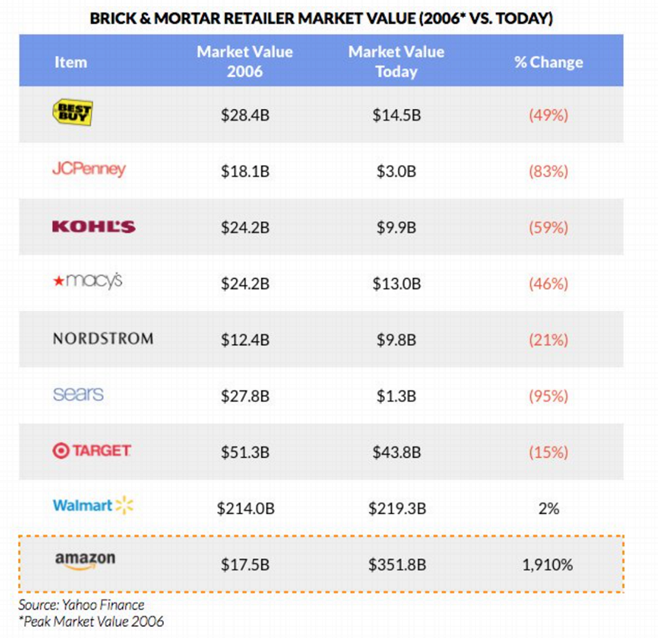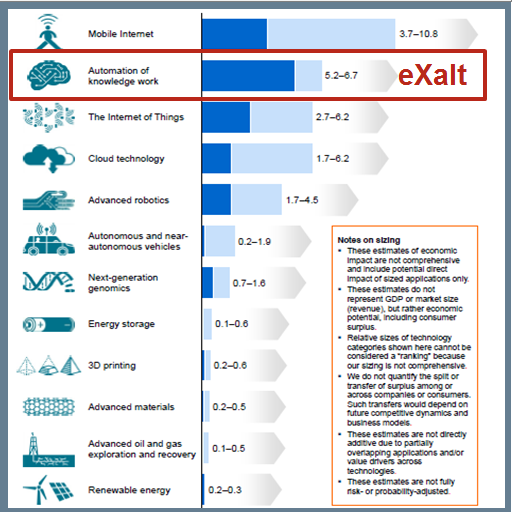12 Digital Trends Changing B2B Sales

“The future ain’t what it used to be.” Yogi Berra
The traditional B2B sales process is notoriously slow with many knowledge gaps that are bridged by high-touch manual labor across a vast partner ecosystem. Recent digital trends have built into a massive disruptive tsunami - forcing B2B companies to move away from traditional sales methods or face certain destruction.
TRENDS THAT ARE CHANGING B2B SALES
- Social Change: Talking to a sales rep is increasingly perceived as annoying, slow and error prone. Buyers want modern digital self-service. 70% expect a web Amazon Self Service experience. (SSI)
- Technical Change: Technology is better than humans in weaving together solutions from thousands of vendors with 1,000-100,000’s SKU’s each undergoing constant change.
- Economic Change: Margins have been shrinking and require lower touch process
- Process Change: In the new digital era, sales reps are not contacted until buyers are 2/3 of the way though the decision process. (Pace Productivity)
- Expectation Change: B2B buyers need information from both the reseller’s back-office and an entire partner ecosystem of distributors, vendors and integrators. Buyers demand agility and expect this information to be retrieved, aggregated and presented almost instantaneously without human delay.
- Competitive Change: New entrants can appear out of nowhere and steal your clients with a digital business model.
- Customer Experience Shift: 89% of business leaders believe customer experience will be the primary basis for competition (Gartner). Simple digital experiences will not help in acquiring and keeping customers. Buyers expect you have to solve problems and advise on solutions in the context of their business problems.
- Shift to Digital Workers: Looking forward, leading analysts and experts see that sales is ripe for automation: After examining 365 professions Oxford University found that “Sales is the number one profession across 365 careers to be most likely Automated by Artificial Intelligence.”
- Shift to Plug and Play Business Models: Digital reduces transaction costs and changes how value chains are assembled. Third-party products and services are expected to be digital Lego blocks that can be quickly blended. In the travel industry, portals assemble your entire trip: flights, hotels, and car rentals in real time. No longer are stand-alone offerings popular – it is expected that offerings plug into each other. B2B must emulate this model for selling complete multi-vendor solutions.
- Acceleration in Rate of Change: Ray Kurzweil of Google has found that once any domain becomes information enabled (eg digital) it is subject to the same doubling every two years as Moore’s Law described for integrated circuits. This means that B2B companies must move quickly – every two years the rate of change doubles!
- Demographic Change: Millennials represent 27% of the population, and their spending power will rise significantly over the next 10 years. These digital natives expect digital self-service and dislike using the telephone.
- Personalization Change: 81% of companies place personalized customer experience in their top three priorities. (Accenture) Large customers are increasingly demanding solutions oriented buying experiences that connect directly with their purchasing portals. Unlike prior versions of catalog oriented portals future portals will be advisors and emphasize solutions building and advisement that may be unique for each buyer.
I would argue that those in the industry who think “that digital disruption won’t happen to them” are engaged in wishful thinking and could be victims of Digital Darwinism.
Digital Darwinism: - When technology and society evolve faster than an organization can adapt.
We can already see the impact of digital Darwinism. Just, since 2000 -
“52% of the Fortune 500 have gone bankrupt, been acquired or ceased to exist in large part due to the disruption by digital.”(Accenture)
John T. Chambers, the former President and CEO of Cisco, recently said this about digital’s power to make businesses extinct:
“Forty percent of businesses in this room, unfortunately, will not exist in a meaningful way in 10 years,” adding that 70% of companies would “attempt” to go digital but only 30% of those would succeed.”
If you think John Chambers is full of malarkey, let’s look at the damage digital knowledge and digital customer experiences have done to B2C in 10 short years. These companies thought their brand name, brick-and-mortar presence, face-to-face customer service and relationships would save them. But it didn’t as you can see below:

B2B must learn from the digital tsunami that has disrupted B2C. One of the most important lessons is that digital customer experience is the new competitive advantage with two important characteristics:
- Closing knowledge gaps and empowering buyers with self-service
- Removing friction and delays in the buying process with digital pathways
Companies that provide digital advisors and digital administrators to help customers serve themselves with agility will win big in this new era.
Closing Knowledge Gaps with Knowledge Work Automation
The digital technology that closes knowledge gaps is Knowledge Work Automation.
Knowledge Work Automation - “the use of computers to perform tasks that rely on complex analyses, subtle judgments, and creative problem solving…to interact with a machine the way one would with a co-worker.” McKinsey
The massive potential for Knowledge Work Automation was identified by McKinsey as the second-largest opportunity in its study "Disruptive technologies: Advances that will transform life, business, and the global economy". It is second only to Mobile:
Disruptive Digital Technologies

In today’s world B2B companies can leverage these digital problem solvers via a SaaS platform. Our Knowledge Work as a Service (KWaaS) Platform was built to allow B2B companies to build an on-demand virtual workforce of Digital Advisors and Digital Administrators. Leveraging digital workers allows B2B companies to avert what has become a crisis in scale by taking over the rules based and repetitive tasks that sap the productivity of your workforce.
Summary: Modern B2B companies who adapt to these industry trends and marketplace shifts will succeed. A business that is agile and can scale by leveraging digital resources will take share from those that keep doing what they have always done. Yesterday’s recipes for success will not succeed in today’s business landscape.
Have I forgotten anything? Please let me know at lswanson@exaltsolutions.com.